Southern Urbanism
In the first session of the mini-conference organised by the ISTP prominent local academics and practitioners were invited to speak on a range of topics relating to southern urbanism and urban insecurities.
by Sam Lloyd & Michael Walczak
The first lecture by Prof. Edgar Pieterse from the external page African Center for Cities (ACC) based at University of Cape Town (UCT) was focused on Evidence based design and Adaptive cities. Pieterse categorized African urbanization, economic development and well-being into 5 typologies: diversifiers; early urbanizers; late urbanizers; agrarians; and the natural resource-based countries. Especially the late urbanizers and agrarians are experiencing rapid population growth, not due to rural-to-urban migration, but due to internal growth as a result of high fertility rates (Fertility 5 children and more, 50% younger the 19 years old). Every country and context has different drivers which makes it so important to understand first the interface between those typologies but in particular the local conditions and therefore be able to adapt the infrastructure to societal changes.
The second lecture by Dr. Sylvia Croese of the ACC discussed the rise of the city in both economic and political terms, with a special focus on African cities, and Cape Town in particular, in the context of Southern Urbanism. She described the main policy issues currently faced by these cities – such as rapid growth and urban sprawl – and the challenges to the implementation of viable solutions by both international and local governance actors. Dr. Croese followed this with a discussion of current projects by the ACC, and in particular the Mistra Urban Futures project. This involves a series of international comparative research projects in Gothenburg, Skåne and Stockholm in Sweden, Sheffield-Manchester in the UK, Kisumu, Kenya and Cape Town in South Africa focused on how cities are interpreting and implementing the Sustainable Development Goals (SDGs).
The third lecture by Prof. Ivan Turok focused on the work of the external page Human Sciences Research Council (HSRC) with the Joe Slovo Park settlement community in Cape Town. He described changes to the settlement over time, and the way insecurity is experienced at multiple levels (economic; physical; personal safety; social; and subjective/emotional). To address these issues, Professor Turok emphasised the need to strengthen community structures and the importance of community-led processes; the need to densify inner city areas close to economic opportunities; and the promotion of affordable rental housing, among others.
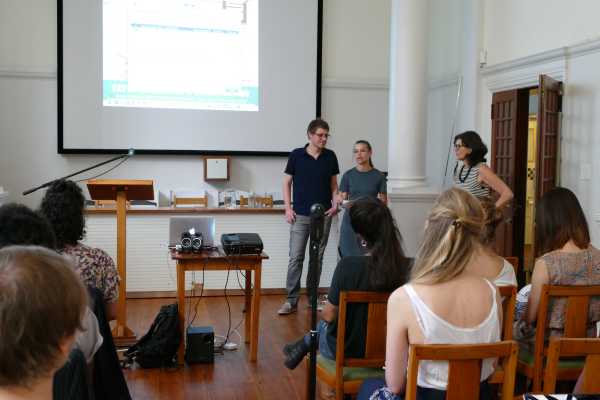
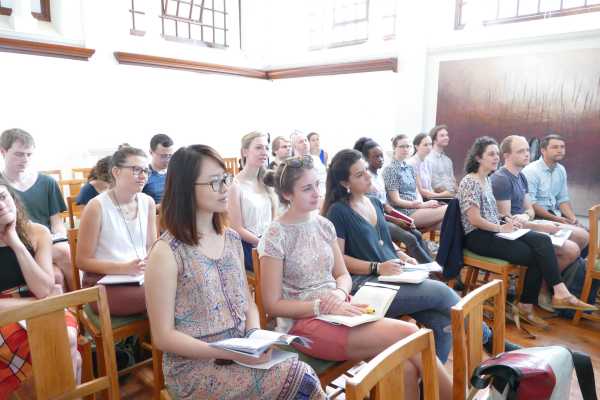 Prof. Edgar Pieterse from the African Center for Cities (ACC) of UCT giving a talk at the ISTP Mini-conference during the spring school in Cape Town.
Prof. Edgar Pieterse from the African Center for Cities (ACC) of UCT giving a talk at the ISTP Mini-conference during the spring school in Cape Town.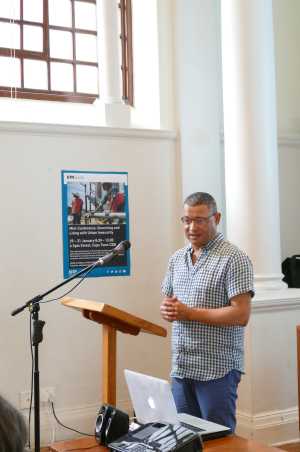 Dr. Sylvia Croese of the ACC giving a talk at the ISTP Mini-conference during the spring school in Cape Town.
Dr. Sylvia Croese of the ACC giving a talk at the ISTP Mini-conference during the spring school in Cape Town.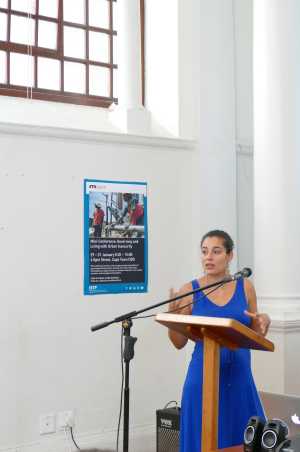 Prof. Ivan Turok of Human Sciences Research Council (HSRC) giving a talk at the ISTP Mini-conference during the spring school in Cape Town.
Prof. Ivan Turok of Human Sciences Research Council (HSRC) giving a talk at the ISTP Mini-conference during the spring school in Cape Town.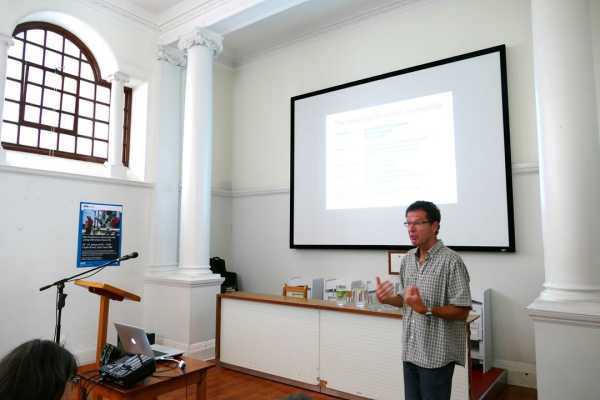
Find out more about the three day mini-conference sessions in Cape Town, South Africa.